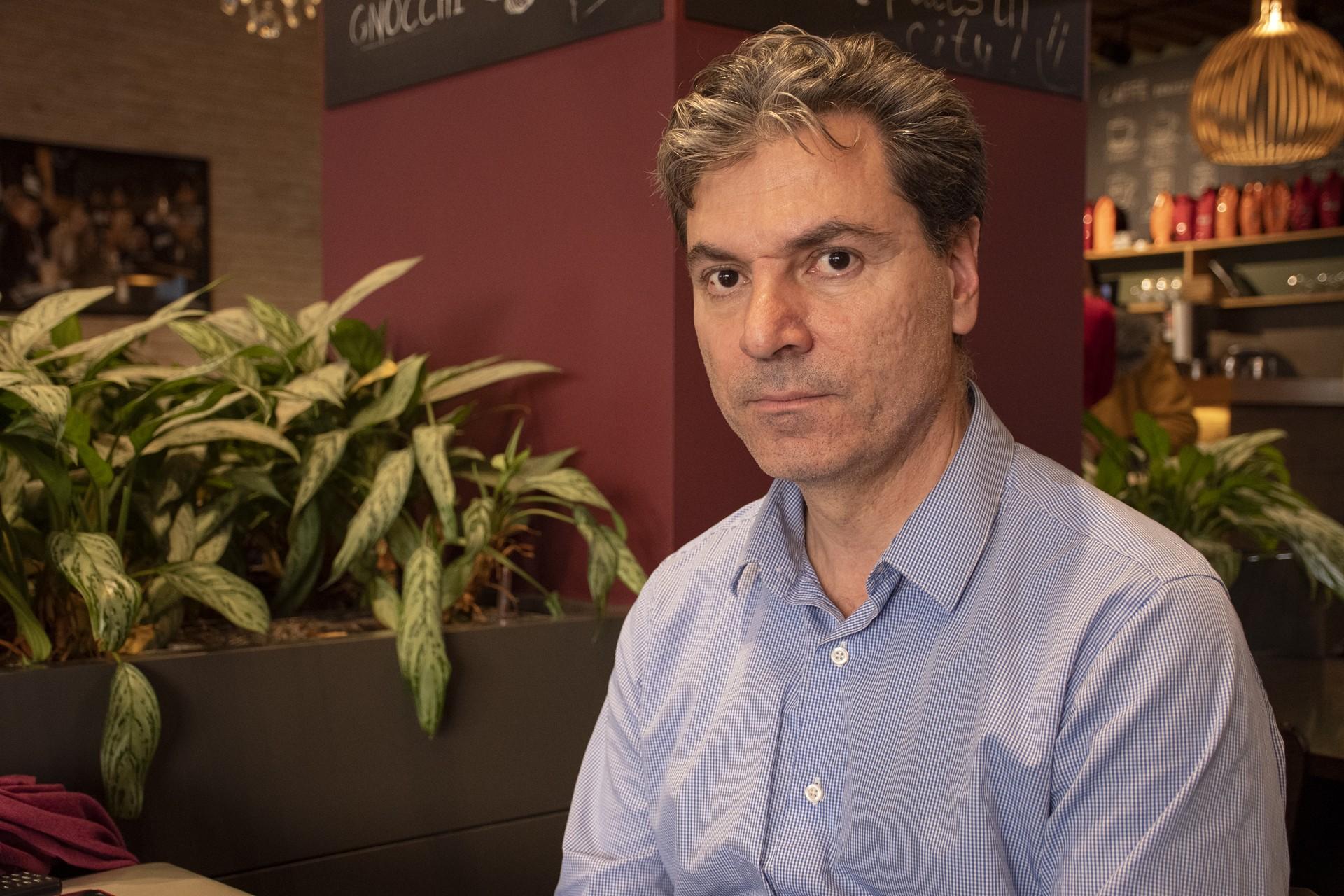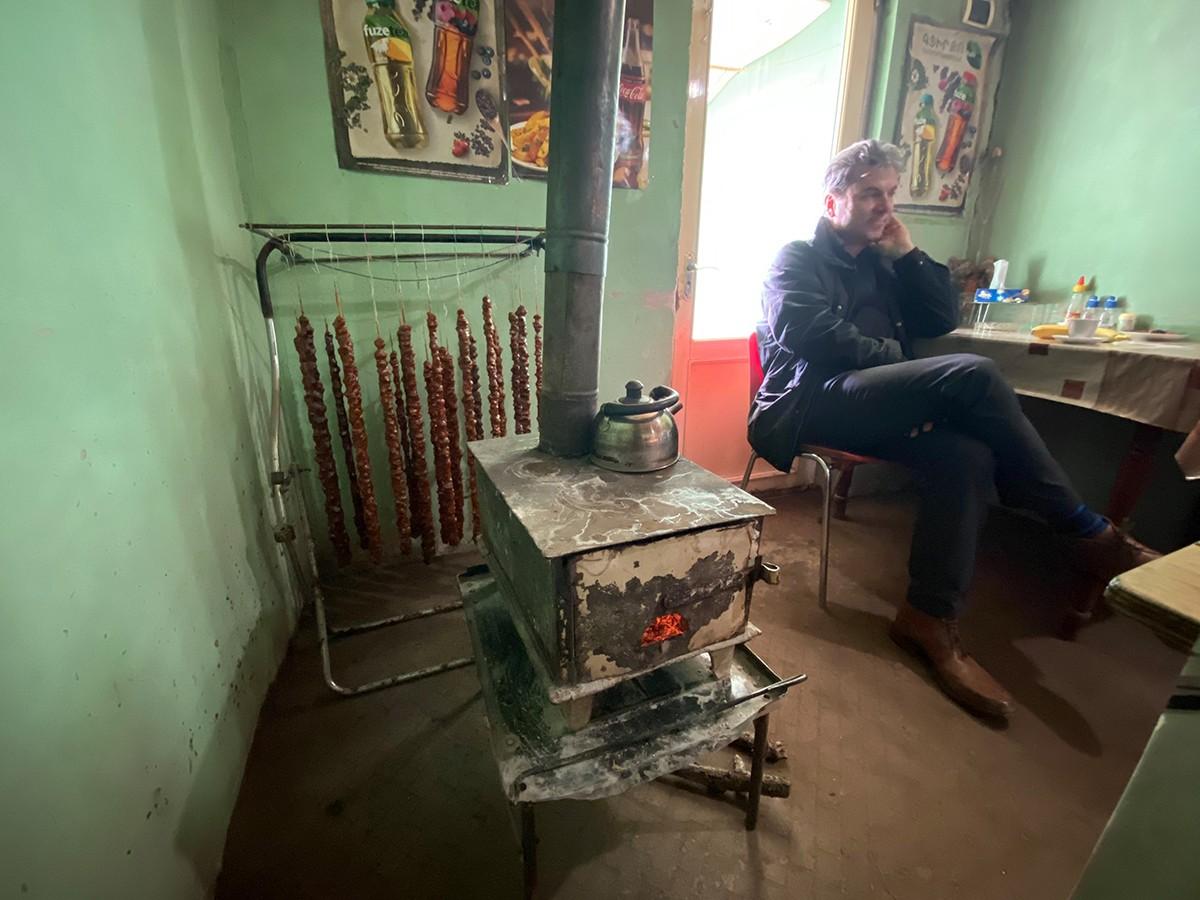
Vicken Cheterian Calls for Reboot of Diaspora-Armenia Relations and Acceptance of Our National Failings
Hetq talks with Vicken Cheterian, Lecturer in History and International Relations, University of Geneva, and Webster University Geneva Branch.
As an Armenian living in the diaspora, what is your opinion about the perception of the diaspora by Armenia and people in Armenia following independence? Are you satisfied with that perception?
To be honest, I am not satisfied. There is nothing to be satisfied with. During the 1990s, the diaspora didn’t know Armenia and neither did Armenia know the diaspora. There were huge mistakes on both sides. It was not only a problem of the political leadership of Armenia, but also of the society and various institutions. Let's look at the state policy. Each of the four leaders of Armenia has developed different policies and they have reached the same conclusion - give us money. For the first three leaders, that money was in the form of assistance. In the case of the fourth, it was investment. There is not much development from one idea to another.
In other words, the Armenian authorities regarded the diaspora as a source of money.
Yes, nothing more.
Why was that perception formed?
It is a much more complicated issue, for which sociological work should be done, which has not been done. I do not know why this is so. Not only the authorities, but also various public structures do not need anything else, only money from the diaspora.
Look at the state of Armenia-Diaspora relations outside the state system. Here, the diaspora has created several structures that have never been able to cooperate with local structures. For example, there were various programs from the diaspora that wanted to develop the field of information technologies (IT). In Armenia, they created their own, such as Tumo, but could not cooperate with local structures, with Yerevan State University, to become a large-scale program.
Why didn’t such cooperation succeed?
Because the structures in Armenia never wanted it. Because all the structures in Armenia are very provincial. After the passing of the Soviet Union, they are all "one man" shows. They cannot enter into complex relations. They do not have that ability. If you go to university, you will see small shops where everyone has their own fiefdom and defends it. Meanwhile, if they enter into cooperation with the diaspora, they must leave those boxes. But they are not capable of doing so.
Maybe there are stereotypes.
We must talk about big processes to know what issues people were trying to solve. After the collapse of the Soviet Union, the main question was who would become the owner of the state inheritance, which was Soviet. If a group of people privatized banks, factories, lands, then what would the university professor privatize? This is a huge problem that remained. It was like that in the 1990s. We could have shaken things up a bit, but it stayed the same.
Armenia-Diaspora relations are based on either bringing money or letting the diaspora come and building a small island here. That island may yield results in ten years, but it will not be able to influence the processes of the structures and institutions of Armenia, thus remaining a small island. In other words, Armenia-Diaspora mechanisms, the logic, is that in the best-case scenario we will let you build a small island, or we will create conditions preventing you from doing so. If we think on a larger scale, Tumo, rather than becoming an island, should have been placed on the backbone of Armenian structures.
We have been talking about the IT sector for twenty years, as far as I know. Do you know how much the turnover of that sector is – a bit more than $400 million in 2019. dollars in 2019. Lukashenko has developed a program in the same field for the last five years. In 2019 alone, the turnover was $3.1 billion. (Alexander Lukashenko is the President of Belarus.)
It seems that the diaspora has changed its attitude towards Armenia following the 44-day Artsakh war. They say people are disgruntled with Armenia. Have you noticed such a trend?
The diaspora must understand that in 2020 not only Karabakh and Armenia lost, but also the Diaspora. The 30-year program of the diaspora lost on all fronts.
This was not only the defeat of Armenia, but this was also our defeat. We pursued a blind policy from the ground up. For example, in March 1988, the three political parties of the diaspora took a united stand against the developing movement in Armenia, saying that it was an anti-Soviet movement. They argued that if Armenia adopted an anti-Soviet direction, there was the Turkish threat. That is, they did not understand what was happening in Armenia. A year later, all those parties came and established branches in Armenia. Moreover, the ARF nominated its candidate in the then presidential elections. In other words, the party that did not understand the processes here three years ago, political, social, had the audacity to say that it was ready to lead Armenia. I love and respect the ARF very much, but I’m sorry to say, politics does not work this way. Not only could they not help Armenia, but they also emptied the diaspora. Today, the diaspora is in a much poorer state than 1988. All the resources of the diaspora were brought and dumped in Armenia. No one did anything there. During this war, we witnessed the fact that our media is voiceless. We do not have a lobby that can resolve anything. We lack this and that. Thus, this thirty-year policy was a blind and ignorant one.
Today, we must research the ambitions, the capabilities, and the place of the diaspora. Armenia should no longer have a penny of help from the diaspora. We should invest to strengthen the diaspora. Diaspora-Armenia relations must be a partnership. Armenia should propose the following to the diaspora - you can help us to solve these issues, but not with your pennies. What they collected during the war were pennies. They were the savings of those people. They should invest those pennies to keep schools open in the diaspora, to improve newspapers, to develop spheres of influence, which Armenia and the diaspora need. We worked with pennies for thirty years. In other words, our biggest ambition was pennies.
Do we have a definition of diaspora today? What is the diaspora?
There is no center in Armenia to study what the diaspora is. How interested is Armenia in the Diaspora? Zero. There is no center in the diaspora to study what the diaspora is.
For the last thirty years, all the structures of the diaspora - the parties, the charities, the church - thought that their role was to support the survival of Armenia. We cannot save Armenia. At most, we can help Armenia. And in my understanding, that help should not be pennies, but cooperation, problem solving. For example, if we want to develop the IT sector, what should we do?
For there to be cooperation, we must have a group of intellectuals and politicians in Armenia who can look 5-10 years down the road. That group does not exist today. But that alone is not enough. We must also have a leadership in the diaspora that will lead the diaspora. We do not have that either. And in that case, they will not the diaspora will have no influence to talk to Yerevan.
The diaspora is a combination of different scattered realities. Armenia is a nation-state, a concentrated force. And the concentrated force, if it has a scattered force next to it, can be greater. If, say, there are 3 million people in Armenia, there are more in the diaspora. In that sense, the diaspora is a greater force, but it is not a concentrated force, it is weaker. Yerevan can impose on the diaspora what it needs. However, if the diaspora does not have a strong leadership, it cannot say, "Dear Yerevan, pennies are not important, we can solve a problem for you, for example, to develop technology that will bring you millions instead of pennies for three years."
What changes did you notice after the war - mentality, attitude, approach?
I have noticed two changes, one in Armenia and in in the diaspora. I have been here for two weeks. Now, in Armenia, there is the notion that we need the diaspora. Since the main forces in Armenia, the intellectual circles, are in shock, they do not know what they want. They are ready to listen to the diaspora, which I have not noticed in the last 10-15 years. Back then, they were ready to teach a lesson to the Diaspora. Now, there is a hint of a change. I do not know how long it will last. There is another crisis in the Diaspora ․ There is a feeling that we were deceived. That we were told, you must help, and that we helped. We were told we must build a bridge, and we did. You must build a road, and we did. Now, this formula is no longer possible. I do not know what will happen next, but now there is that shocking reality in the Diaspora. People realize that what they did in the last thirty years led to a very deep failure. But there is no answer to what we are going to do next.
In other words, is there disappointment?
It may not be disappointment. The circles I talk to are people who were active, are active, will remain active. They know that it is not possible to continue in the same way. We need a different approach, a different way of working with Armenia. The old approach of bringing pennies to Armenia and hoping that something will happen in thirty years isn’t viable.
What should be done?
First, we must ask the right questions. Second, we must correctly assess the failure of the last thirty years. Why are we in this mire? There are reasons, aren't there? And those reasons are not only the authorities or the politicians. They have their responsibility. But all of us, you and I, are accountable. I have been in contact with Armenia since 1992, I have worked here. Maybe I too have made mistakes. If I do not check them, we will reproduce the same mire in the next thirty years. But if we want to get out of this swamp, we must at least be honest, accepting that we made mistakes and correct them.
There’s the opinion that we lost this war because of our ignorance. Do you agree?
Yes, I agree. Illiteracy permeates all spheres. Pick any sector and you’ll see that there is no critical thinking. You have not created a concept to correct your mistakes. Thirty years of this has led to the current situation.
Do you know why we won the first war, or why the Azerbaijanis lost and won this war? When you go back to 1988, you will see Armenian critical thought. At that time, Levon Ter-Petrosyan and Vazgen Manukyan had a good understanding of developments in the Soviet Union. For example, before the collapse of the Soviet Union, Vazgen Manukyan had notes in Hayk where he says that this state is on the verge of collapse and we must prepare our independent statehood. Armenia took the first steps of its independent statehood because it understood where the processes were going. There was a Soviet nomenclature in Azerbaijan, which was still in power. Azerbaijan lost because its internal struggle erupted during the most intense time of the war, not because we were more courageous or because historical justice was on our side. During perestroika, the Azerbaijanis were allied with Moscow, with Gorbachev. During those years we were oppressed, and when the Soviet Union collapsed, they were in uncertainty. In Armenia, they were ready. There were ties with the Russian Democrats and so on. And now we have a generation that is not one step ahead of events, but backwards.
We must ask questions in all areas. First, we must accept that this is a defeat for all of us. This is the defeat of the Armenian media, diaspora structures, Armenian diplomacy, and of course, the army. But at the same time, it is the defeat of our strategic thinking. We were one step behind. Look at the movement of the Azerbaijani army, they were always on the move. We were always in a static state. We tried to salvage 1994, but we were in 2020.
We need a good government and a good opposition. The government cannot solve problems without a counterbalance.
Universities must ask themselves why they produced such a deficient intelligentsia in the conditions of independence. The Soviet intelligentsia was smarter.
The media should ask itself the same question. Accusing people of being traitors is not interesting. All media outlets should ask where they went wrong and what can they correct.
Kindergarten teachers should ask themselves what mistakes they made. Why, for thirty years, did they raise a generation that brought us to this situation? This huge mistake killed 4,000 young people and wounded 9,000. We are all accountable before these young people. And if we do not feel the responsibility, do not ask these questions, we will not repair our structures. We will not clean our house and will remain stuck in the mire we have today.
I hope that this strong defeat will wake us up. Our structures are poorer than all the Azerbaijani structures. We must understand that neither the Russian army, nor Denmark, the United States, England defeated us. It was Azerbaijan, whose economy depends on oil, the money received from oil, that defeated us. We could not fight back with our scientific and intellectual thinking. We must understand this.
 Videos
Videos Photos
Photos


Comments (3)
Write a comment